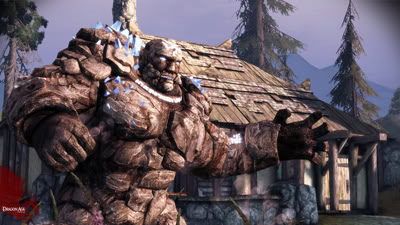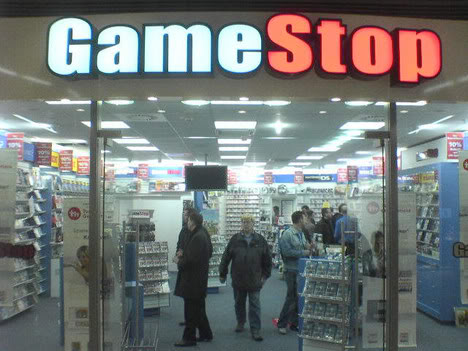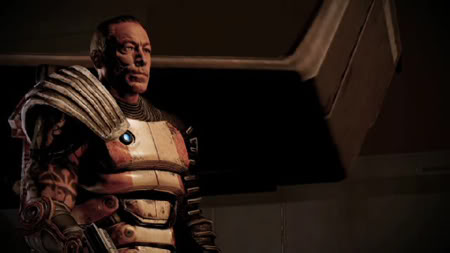This post has not been edited by the GamesBeat staff. Opinions by GamesBeat community writers do not necessarily reflect those of the staff.
Editor’s note: Michael explores the recent trend toward day-one DLC as a way to encourage new game sales. It’s great for publishers, but maybe not so great for the rest of us…. -Demian
When you buy a physical copy of a game, the general consensus is that you own that game. You aren’t leasing it or buying temporary rights to it, as is the case with some greasier interpretation of Digital Rights Management. The company that made the game can’t very well come into your home and take back your discs in five years, claiming that some implicit contract has expired. The game is your permanent property. If you take care of it, it could conceivably last forever, and should you decide to sell the game to somebody else, you’re well within your rights to do so in North America.
However, to combat the perceived threat of used game sales, some publishers have taken steps to make buying used less desirable. Big publishers still offer exclusive pre-order bonuses as incentives for new launch day purchases, but for games whose sales don’t typically nosedive after the first two weeks of shelf life, there’s a new solution: one-time access to premium content that, in essence, makes a chunk of your purchased game a perishable commodity.

Mass Effect 2 and Dragon Age: Origins. Warning: Portions of these products may be perishable and contain nuts.
Mass Effect 2, developed by Bioware and published by EA, recently launched with something called the Cerberus Network, an in-game pipeline for downloadable content (DLC). Massive technical hiccups and poor customer support notwithstanding, the Network offered two pieces of DLC during launch week, as well as a means to redeem pre-order bonus codes. The catch lies in the fact that to access the Cerberus Network, players need to enter a single-use code included with new copies of the game. Players purchasing pre-owned copies of the game without unused codes included need to pay a $15 fee to access current and future DLC — though paid DLC will be available outside of the Cerberus Network.
This isn’t an entirely new concept. Dragon Age: Origins, also from Bioware, launched in late October with a code to download The Stone Prisoner, a DLC pack that offered an additional character and quest free with new copies of the game. Owners of used copies had to pay $15 for access to the same content. Epic Games employed the same principle back in late 2008, when they included a code to download the Flashback Map Pack, a set of five classic multiplayer maps, for free with new copies of Gears of War 2. Months later, the pack was available to everyone on Xbox Live for $5.

Shale, the Stone Prisoner, begging you to buy new.
Obviously, publishers put these measures in place to discourage used game sales. When you buy a new copy of a game, about 13% of what you paid goes to the store you bought it from, assuming you purchased it at a big box retailer like Best Buy or a specialty store like Gamestop. A portion of the remainder is profit for the publisher. But when you buy a used game, none of the money you paid goes to the publisher. Stores like Gamestop love used game sales because of the 50% average markup they add to the trade-in value for what’s arguably a “good as new” copy. Publishers generally feel that the sale of that pre-owned copy is one less new copy sold, and is tantamount to taking money out of their pockets.
So, why should we care? Publishers have found a way to encourage people to buy new, and we get a little extra game for our buck, right? Unfortunately, nothing is free, especially when it comes to video games. While we can argue whether or not perishable content downloads contain material expressly cut from games to be later used as a bargaining chip, the fact remains that you’re essentially “using up” a portion of the material that came with your game.
You can’t transfer access to the Cerberus Network to another account, and if you sell your Xbox 360 and keep the game, you’ll have to pay again for access to the Network later on down the line. That’s assuming, of course, that Xbox Live is still up and active years down the road when you decide to revisit Mass Effect 2. And while Microsoft claims that you have unlimited access to your purchased DLC, the hair-pulling ordeal I went through last summer to recover my content after my 360 died really emphasized the temporary nature of DLC in general.

GameStop. Not pictured: Satan.
Additionally, the idea of perishable DLC for new users is meant to punish used owners, but in essence, it often results in just one more headache for early adopters. Many gamers had problems working through the draconian ritual required to access the Cerberus Network’s content, a process that requires linking multiple accounts together, entering long code strings, and drawing perfectly proportioned pentagrams. I managed to get through the process with relatively little effort, since I can draw a mean pentagram, but a lot of people were unable to receive their “gift with purchase” in a timely manner.
New owners who don’t have access to Xbox Live are similarly boned, as there’s no way for them to actually access their free content. No amount of hoop jumping will magically divine that content onto their hard drives without an Ethernet connection, as no other method for getting the content exists.
Can you play these games without the premium content? Absolutely. Though publishers attach a hefty price tag to offset the profit lost from used game sales, the content itself is arguably worth a lot less. The Normandy Crash DLC offered through the Cerberus Network is a shallow 10-minute solo adventure with no combat whatsoever. Likewise, the Zaeed pack contains the titular mercenary for your party, a new quest, and access to a new heavy weapon, but the hollow, underdeveloped content barely takes 20 minutes to fully explore. Neither of these pieces of content is necessary to enjoy the game; for players with pre-owned copies, the Cerberus Network is more of an opt-in used game tax than a mandatory tariff. You can live without playing either adventure.

It’s OK, Zaeed. Nobody likes you anyway.
However, there’s something unsettling about the fact that segments of my purchase have eroded before my eyes. Even more unsettling is the idea that more and more publishers may follow EA’s path down the slippery slope, eventually cordoning off substantial portions of their games for new users only.
With everybody doing what they can to survive in this poor economic climate, I’m not looking forward to whatever methods publishers may use to protect their profits should perishable content become de rigueur. I doubt we’ll ever reach a point where we’ll have to pay to see the ending to a game. But 10 years ago, I also doubted that I would ever be able to purchase a game without visiting my local brick-and-mortar retailer.
Steam says hello.
